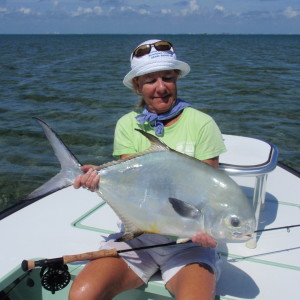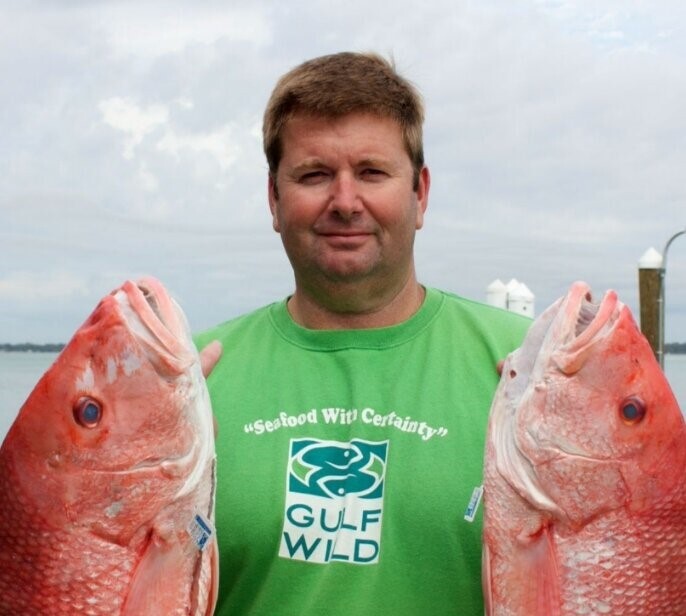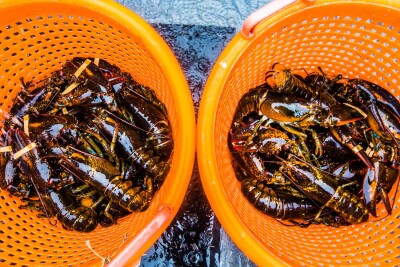Still reeling from the beat-down delivered by back-to-back hurricanes Helene and Milton on Florida's Gulf coast this fall, Jason Delacruz nonetheless kept his focus on getting Wild Seafood Co. back up and running.
Despite several feet of storm surge, Wild Seafood’s docks, fish market and five commercial fishing boats were mostly spared. But the power was out and there was no way to make ice on site to supply the boats, whose captains were anxious to catch the bonanza of grouper and snapper chewing up forage fish in the storms' aftermath.
Delacruz was undaunted. He began scouting docks in nearby ports for working coolers.
“Whenever the bite's on, you want to get there,” he said. “You give me an ice machine, and I'm up.”
Delacruz, a 54-year-old Tampa Bay area native, has been addicted to fishing since age 5. By age 10, he was catching bait on his aunt's commercial bandit boat. He ran a boat repair company for a few years and spearfished commercially for grouper and snapper. He built Wild Seafood Co. in 2014 in Madeira Beach, operating a wholesale and retail fish market and dock that now has three longline boats and two rod-and-reel boats – one of them doubling as a dive boat for spearfishing. Wild Seafood also employs a cross-docking system, unloading the harvest of as many as 70 boats from throughout the Gulf and then shipping the fish to market.
Delacruz has been an active participant in fisheries management ever since he got into the industry more than 20 years ago. He has attended nearly every meeting of the Gulf of Mexico Fishery Management Council, advocating for commercial fishers and asking questions about the science and rulemaking affecting Gulf fisheries. He has served on a wide range of committees and study groups, and represents the Seafood Harvesters of America, which promotes healthy fish stocks and helps build profitable commercial fishing businesses.
One of Delacruz's key contributions to the industry is the Gulf Wild seafood brand, which he helped develop and implement with the Gulf of Mexico Reef Fish Shareholders Alliance. In the aftermath of the 2010 BP oil disaster, some consumers were shying away from Gulf seafood products, fearing they were contaminated.
Gulf Wild created its own system of full traceability. Each individual fish harvested and taken to market bore a Social Security-like tag with a QR code stating the name of the harvesting boat; the waters where the fish was caught; the date of catch; and the method of harvest. No imported fish were allowed to carry the tag. Not only popular with consumers, Gulf Wild also provided direct benefits to commercial boat owner/operators who were paid more for their catch as new markets expanded and prices rose.
“We probably tagged six million pounds of fish in 10 years,” Delacruz said.
In 2016, he was honored by the Obama administration as a “Champion of Change for Sustainable Seafood.”
Delacruz was an early supporter of individual fishing quotas and the vessel monitoring system in the Gulf, which some of his fellow fishermen vehemently opposed. He stated his case before the Gulf council to reduce quotas for some fisheries in the interest of conservation and accountability.
While Delacruz says he believes the U.S. manages fisheries better than any country in the world, he adds: “I don't know if we do it the best it can be done.”
“National Marine Fisheries Service's ability to address the issues that commercial fishers bring up, by the time they respond, it's so slow, it's useless,” he said. “NMFS won't place enough value on the data we collect.”
He points out that the reams of data the commercial industry is required to collect and report to the federal government about what is caught and when and where it was caught should carry more weight with fisheries managers than it currently does. This information is often discounted, ignored, or shelved – risking the health of fish stocks.
As examples, Delacruz cites red snapper – long a stable Gulf fishery, but now in peril of being overfished by increasing total allowable catch – and gag grouper, subject to recent management whiplashes on total allowable catch.
Delacruz believes one of the most pervasive problems with fisheries management is the lack of hard data on how many fish are being removed by recreational fishers. He would like to see a mandatory reporting program for that sector.
“We have no idea what that effort looks like,” he said. “Mandatory reporting on an app on the phone, after about three and a half, four years, we'd have a really strong handle on effort. Commercial fishermen are constantly reporting data. Magically, we can't get anything to track this recreational fleet.”
John Sanchez, the commercial sector representative on the Gulf Council, says Delacruz isn't wrong.
“Technologically, we're at a point in time where everybody is familiar with cell phones and apps. If we have technology that gives us more of an estimate of what we're taking out of the stock, we'd have a better understanding of how much we can take and how we could equitably distribute that,” Sanchez said.
He agrees that commercial fisher input is not being given the weight it deserves at the council level.
“Maybe they don't have a ‘doctor’ in front of their name. They spend 200-300 days out on the water,” he said. “They're our canary in the coal mine.”
Sanchez said he first met Delacruz in 2012 during one of the fisherman's numerous appearances before the Council.
“He always could give an intelligent and very articulate point of view,” Sanchez said. “He's a gentleman. He can disagree without being disagreeable.”
Sanchez remembers Delacruz explaining the successes of the individual fishing quota and vessel monitoring programs. “It's a hell of a thing when you hear a fisherman asking you to take money out of their pocket to conserve the stock,” Sanchez said.
Delacruz is deeply committed to bettering his industry which he believes is gaining traction with a younger generation of fishermen.
“The most valuable commodity in the commercial fishing industry is the independent owner/operator,” he said. “More young people are getting into commercial rod and reel.”
Delacruz recently sold his operation in Madeira Beach, but he's currently paying rent to the owner while he prepares to build a larger (and hurricane-resilient) fish market in nearby Tarpon Springs. He hopes to open by early 2025. And he still plans to get out spearfishing when he can.
Said Delacruz: “I may be a fishmonger today, but I think of myself as a commercial fisherman.”







